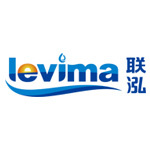QCIOT(688528)
Search documents
秦川物联跌2.00%,成交额718.53万元,主力资金净流出24.62万元
Xin Lang Cai Jing· 2025-10-29 02:23
Core Viewpoint - Qin Chuan IoT's stock price has experienced fluctuations, with a year-to-date increase of 39.66%, but a recent decline in trading performance, indicating potential volatility in investor sentiment [2][3]. Company Overview - Qin Chuan IoT, established on December 30, 2001, and listed on July 1, 2020, is located in Chengdu, Sichuan Province. The company specializes in the research, manufacturing, sales, and service of smart gas meters, integrating core technologies such as precise measurement, smart control, data communication, and information security [2]. - The company's revenue composition includes: IoT smart gas meters (61.56%), smart sensors and related components (17.62%), membrane gas meters (11.49%), and other products [2]. Financial Performance - For the period from January to September 2025, Qin Chuan IoT reported revenue of 219 million yuan, a year-on-year decrease of 16.24%. The net profit attributable to shareholders was -69.89 million yuan, reflecting a significant decline of 66.72% year-on-year [3]. - As of September 30, 2025, the company had 6,303 shareholders, an increase of 7.01% from the previous period, while the average circulating shares per person decreased by 6.55% [3]. Market Activity - On October 29, 2025, Qin Chuan IoT's stock price fell by 2.00%, trading at 12.22 yuan per share, with a total market capitalization of 2.053 billion yuan. The net outflow of main funds was 246,200 yuan, with no large purchases recorded [1]. - The company has appeared on the "Dragon and Tiger List" once this year, with the most recent appearance on July 9, 2025, where it recorded a net buy of -614,700 yuan [2]. Shareholder Information - Since its A-share listing, Qin Chuan IoT has distributed a total of 35.28 million yuan in dividends, with no dividends paid in the last three years [4]. - As of September 30, 2025, the sixth largest circulating shareholder is CITIC Prudential Multi-Strategy Mixed Fund (LOF) A, holding 742,000 shares as a new shareholder [4].
达梦数据大宗交易成交9.66万股 成交额1880.32万元
Zheng Quan Shi Bao Wang· 2025-10-20 14:40
Group 1 - The core transaction on October 20 involved a block trade of 96,600 shares of Dameng Data, with a transaction value of 18.8032 million yuan, at a price of 194.65 yuan, representing a discount of 20.75% compared to the closing price of the day [2][4] - In the last three months, Dameng Data has recorded a total of 38 block trades, with a cumulative transaction value of 1.266 billion yuan [3] - The closing price of Dameng Data on the day of the transaction was 245.60 yuan, reflecting an increase of 1.48%, with a daily turnover rate of 1.15% and a total transaction amount of 206 million yuan [3] Group 2 - The latest margin financing balance for Dameng Data is 738 million yuan, which has decreased by 63.5235 million yuan over the past five days, representing a decline of 7.93% [4] - The main capital outflow for Dameng Data over the past five days amounted to 58.8354 million yuan, with a cumulative decline of 9.69% in the stock price [3]
秦川物联:截至2025年9月30日股东户数为6303户
Zheng Quan Ri Bao Wang· 2025-10-16 10:42
Group 1 - The company Qin Chuan Wulian stated on October 16 that as of September 30, 2025, the number of shareholders is expected to be 6,303 [1]
四川上市公司首份2025年三季报出炉!多家预增,这只川股净利润更是大增近800%→
Sou Hu Cai Jing· 2025-10-16 05:41
Group 1: Company Performance - Qin Chuan IoT reported a revenue of 219 million yuan for the first three quarters of 2025, a year-on-year decrease of 16.24%, and a net profit attributable to shareholders of -69.9 million yuan, down 66.72% [1] - Shenghe Resources expects a net profit attributable to shareholders for the first three quarters of 2025 to be between 740 million and 820 million yuan, representing an increase of 696.82% to 782.96% year-on-year [2] - Yahua Group anticipates a net profit attributable to shareholders of 320 million to 360 million yuan for the first three quarters of 2025, a year-on-year increase of 106.97% to 132.84% [4] - Xichang Electric Power expects a net profit of approximately 12.4 million yuan for the first three quarters, a growth of about 150.51% compared to the previous year [5] - Saintno Bio forecasts a net profit attributable to shareholders of 114 million to 140 million yuan for the first three quarters, an increase of 100.53% to 145.10% year-on-year [6] Group 2: Business Operations and Market Conditions - Qin Chuan IoT's decline in net profit is attributed to lower sales volume and price of domestic gas meters, leading to increased fixed costs and reduced gross margin [1] - Shenghe Resources' significant profit increase is driven by improved market demand and product prices for rare earth products, alongside optimized production and marketing strategies [2] - Yahua Group's profit growth is supported by stable orders from key customers and increased sales of lithium salt products due to favorable market feedback [4] - Xichang Electric Power's performance improvement is linked to enhanced service quality, increased sales volume, and effective cost management [5] - Saintno Bio's growth is attributed to stable development in its main business and increased demand for peptide raw materials, bolstering its market competitiveness [6] Group 3: Strategic Developments - Shenghe Resources completed the acquisition of 100% equity in Australian company Peak, enhancing its global business layout with the acquisition of the Ngualla rare earth mine project [3]
今日13家公司公布三季报 1家业绩增幅翻倍





Zheng Quan Shi Bao Wang· 2025-10-16 02:45
Core Insights - On October 16, 2023, 13 companies released their Q3 2025 financial reports, with 12 reporting year-on-year profit growth and 10 showing revenue growth [1] - Guanghua Technology reported the highest profit growth at 1233.70%, indicating a significant performance increase [1] Summary by Category Profit Performance - Guanghua Technology: Net profit of 90.39 million yuan, up 1233.70% YoY [1] - Yuxin Electronics: Net profit of 73.39 million yuan, up 60.21% YoY [1] - Xinzhi Group: Net profit of 121.51 million yuan, up 39.49% YoY [1] - Haiguang Information: Net profit of 196.14 million yuan, up 28.56% YoY [1] - Other companies with profit growth include Zongyi Co., Jiuzhou Pharmaceutical, and Beijing Lier [1] Revenue Performance - Guanghua Technology: Revenue of 2.04 billion yuan, up 11.50% YoY [1] - Yuxin Electronics: Revenue of 572.13 million yuan, up 40.97% YoY [1] - Haiguang Information: Revenue of 948.99 million yuan, up 54.65% YoY [1] - Other companies with revenue growth include Zongyi Co., Jiuzhou Pharmaceutical, and Beijing Lier [1] Companies with Declining Performance - Qin Chuan Wulian: Reported a net loss of 69.90 million yuan, down 66.72% YoY [1] - Xue Rong Biological: Net loss of 62.35 million yuan, up 61.94% YoY [1] - Other companies with declining revenue include Xue Rong Biological and Qin Chuan Wulian [1]
25家公司公布三季报 2家业绩增幅翻倍





Zheng Quan Shi Bao Wang· 2025-10-16 02:45
Core Insights - As of October 16, 2023, 25 companies have released their Q3 2025 financial reports, with 23 reporting year-on-year profit growth and 18 showing revenue growth [1] - The company with the highest profit growth is Guanghua Technology, with a staggering increase of 1233.70% [1] Financial Performance Summary - **Profit Growth**: 23 companies reported profit growth, while 2 experienced declines [1] - **Revenue Growth**: 18 companies reported revenue growth, with 7 showing declines [1] - **Notable Performers**: Guanghua Technology leads with a profit of 90.39 million yuan and revenue of 2.04 billion yuan, marking a profit growth of 1233.70% and revenue growth of 11.50% [1] - **Other High Performers**: - Daoshi Technology: Profit of 415.44 million yuan, profit growth of 182.45%, revenue of 600.09 million yuan, revenue decline of 1.79% [1] - Sichuang Medical: Profit of -0.48 million yuan, profit growth of 98.32%, revenue of 60.38 million yuan, revenue growth of 6.95% [1] - Xiaogoods City: Profit of 3.46 billion yuan, profit growth of 48.45%, revenue of 13.06 billion yuan, revenue growth of 23.07% [1] Declining Performers - **Profit Declines**: Qin Chuan Technology reported a profit decline of 66.72% with a loss of 6.99 million yuan and revenue decline of 16.24% [2] - **Other Decliners**: - High Energy Environment: Profit growth of 15.18% with revenue decline of 11.28% [2] - Qifeng New Materials: Profit decline of 3.82% with revenue decline of 0.83% [2]
秦川物联(688528.SH)发布前三季度业绩,归母净亏损6989.91万元
智通财经网· 2025-10-15 12:27
Group 1 - The core viewpoint of the article is that Qin Chuan IoT (688528.SH) reported a decline in revenue and a significant net loss for the first three quarters of 2025 [1] Group 2 - The company achieved an operating income of 219 million yuan, representing a year-on-year decrease of 16.24% [1] - The net loss attributable to shareholders of the listed company was 69.8991 million yuan [1] - The net loss attributable to shareholders after deducting non-recurring gains and losses was 71.3843 million yuan [1]
秦川物联:本次计提减值准备合计对公司2025年第三季度合并利润总额减少154.57万元
Mei Ri Jing Ji Xin Wen· 2025-10-15 11:58
Group 1 - The company Qin Chuan IoT announced on October 15 that it will recognize impairment losses totaling 1.5457 million yuan, which will reduce the consolidated profit for the third quarter of 2025 [1] - The impairment losses will be recorded under asset impairment losses and credit impairment losses categories, and the amount is unaudited, subject to final confirmation by the accounting firm during the annual audit [1] Group 2 - The news highlights a significant opportunity in the silver rental market, with annualized interest rates soaring to 35%, indicating a lucrative arbitrage situation as silver is being airlifted to the UK [1]
秦川物联(688528) - 关于2025年第三季度计提资产减值准备的公告
2025-10-15 11:16
证券代码:688528 证券简称:秦川物联 公告编号:2025-023 成都秦川物联网科技股份有限公司 关于 2025 年第三季度计提资产减值准备的公告 本公司董事会及全体董事保证本公告内容不存在任何虚假记载、误导性陈述 或者重大遗漏,并对其内容的真实性、准确性和完整性依法承担法律责任。 一、本次计提资产减值准备情况概述 根据《企业会计准则》以及成都秦川物联网科技股份有限公司(以下简称"公 司")财务制度等相关规定,为客观公允地反映公司截至 2025 年 9 月 30 日的财 务状况及经营成果,基于谨慎性原则,对截至 2025 年 9 月 30 日合并报表范围内 可能发生信用及资产减值损失的有关资产计提信用及资产减值准备。 公司本次计提信用减值损失-97.18 万元,计提资产减值损失 251.74 万元,具 体如下表: 公司以预期信用损失为基础,对应收账款、其他应收款、应收票据进行减值 测试并确认损失准备。经测试,本期计提信用减值损失金额共计-97.18 万元。 (二)资产减值损失 1、公司以预期信用损失为基础,对合同资产减值测试并确认损失准备。经 测试,本次需计提合同资产减值损失金额共计 18.08 万元。 ...
秦川物联:第三季度亏损903.42万元
Zheng Quan Shi Bao Wang· 2025-10-15 11:12
Core Viewpoint - Qin Chuan IoT (688528) reported a mixed performance in its third-quarter results, showing a year-on-year increase in revenue but a decline in net profit for the first three quarters [1] Financial Performance - The company's third-quarter revenue reached 91.5191 million yuan, representing a year-on-year growth of 26.41% [1] - For the first three quarters, total revenue was 219 million yuan, reflecting a year-on-year decline of 16.24% [1] - The net profit attributable to shareholders in the third quarter was -9.0342 million yuan, while the net profit for the first three quarters was -69.8991 million yuan [1] - Basic earnings per share stood at -0.05 yuan per share [1] Operational Insights - The decline in revenue during the first half of the year was attributed to a decrease in sales volume and selling price of domestic gas meters, leading to a drop in operating income [1] - The increase in third-quarter revenue and gross margin, along with a reduction in net loss compared to the first half of the year, indicates an improvement in operational conditions [1]

